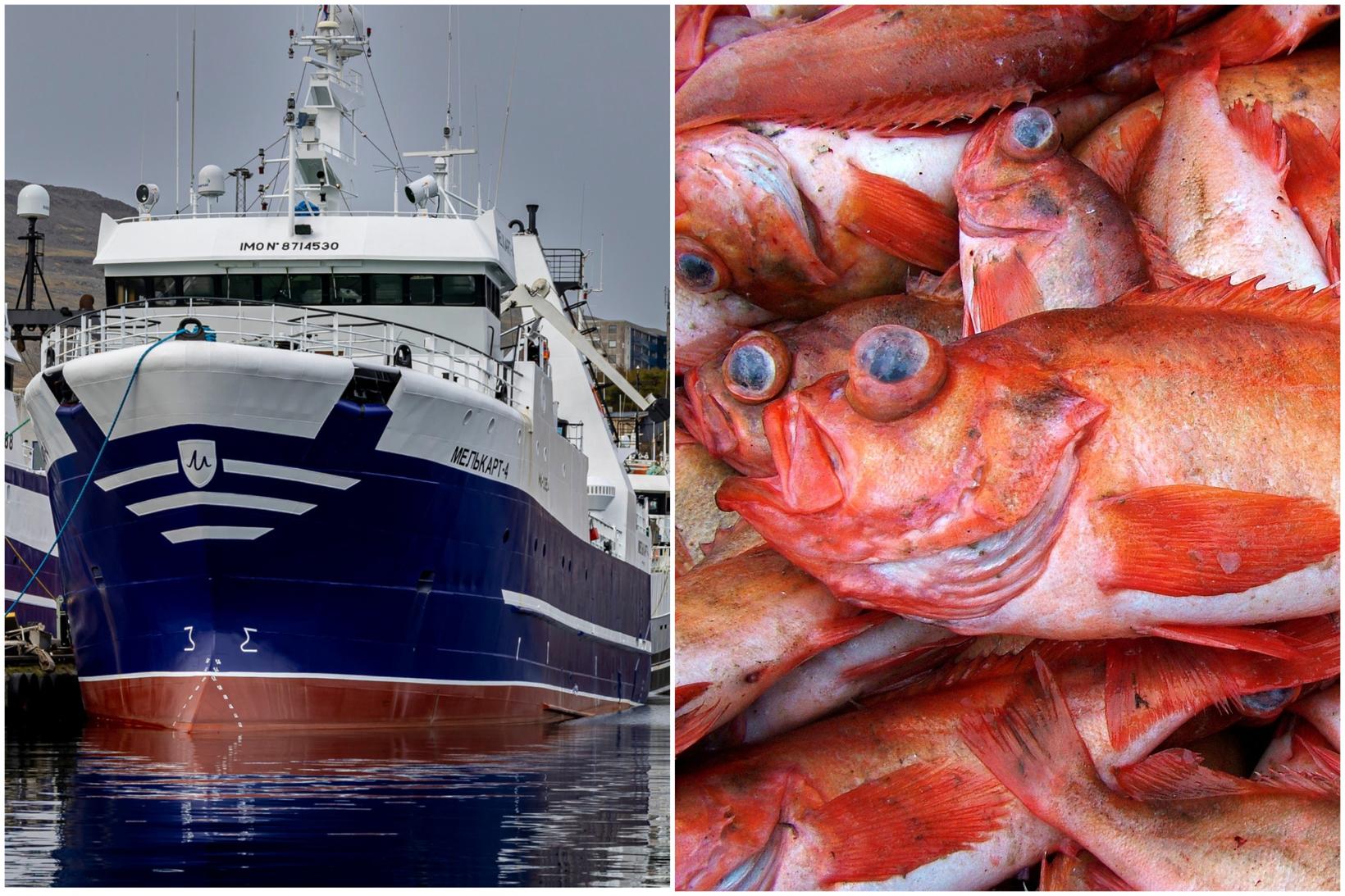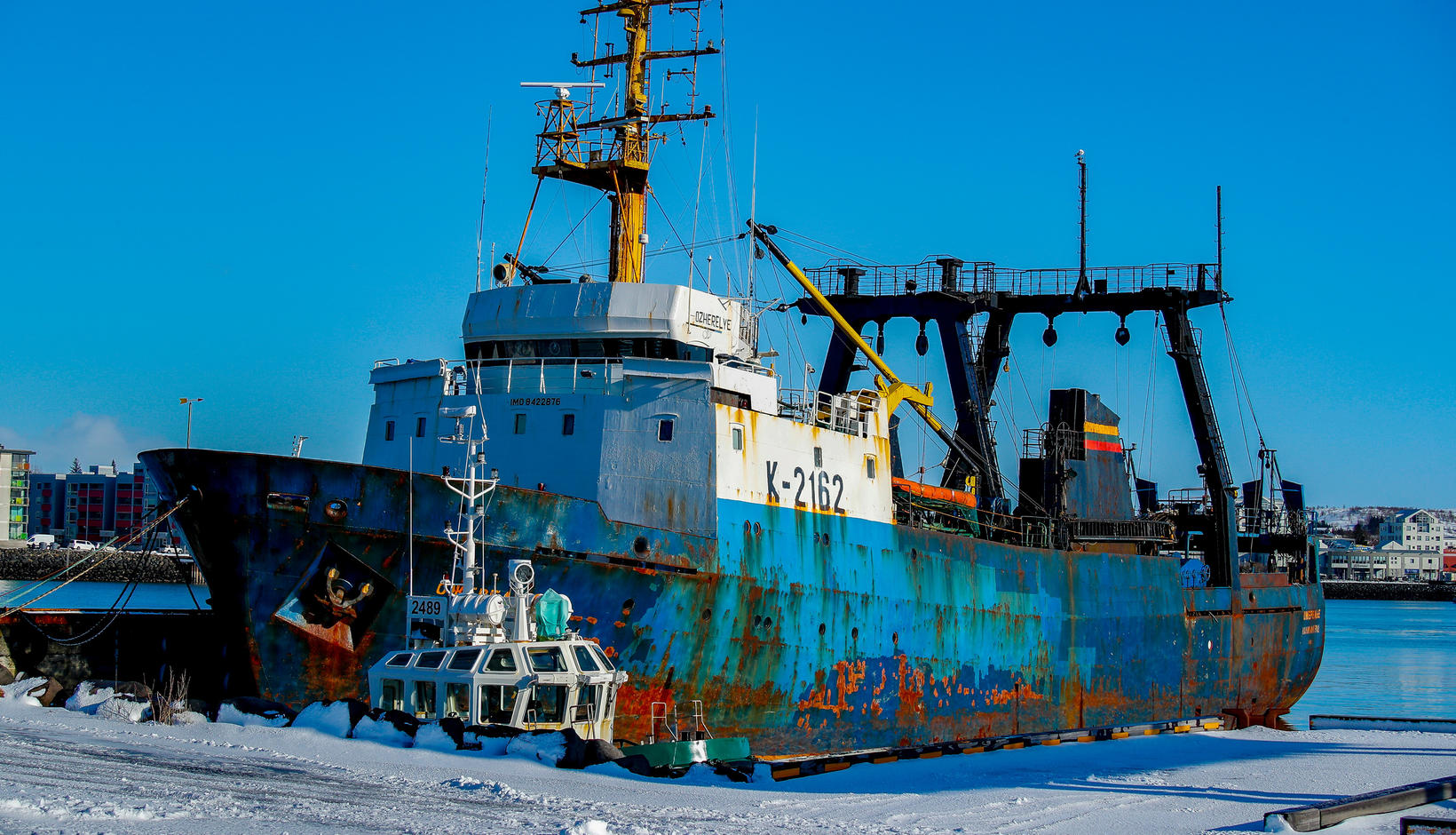Russian trawlers fishing near Iceland’s economic zone
Russian Trawlers Fishing for Ocean Perch in International Waters Near Icelandic Jurisdiction. Composite image/Árni Sæberg/Alfons
Seven Russian trawlers are fishing just outside Iceland’s exclusive economic zone. At the peak in mid-June, there were fifteen vessels.
This is according to Ásgrímur Lárus Ásgrímsson, operations director at the Icelandic Coast Guard, in an interview with mbl.is .
Ásgrímsson says it happens every year that Russian trawlers head to the Reykjanes Ridge, just outside Icelandic waters, to fish for ocean perch. He says they usually arrive in early May and fish through July.
The Russians are fishing for ocean perch alone in this area, as they have not respected the fishing ban on this stock. Ásgrímsson says he expects them to return next spring.
Since the fishing takes place in international waters, the Coast Guard has limited authority to intervene, according to Ásgrímsson. Nevertheless, a service ban is in effect for the trawlers as a response to their refusal to comply with the fishing moratorium.
“They’re not trying to hide”
Ásgrímsson says the Coast Guard is closely monitoring the Russians. “They’re not trying to hide, as they have their remote monitoring equipment turned on, which they are required to have under international maritime safety regulations,” he says.
He says the Coast Guard occasionally flies over the area to keep watch. In addition, Coast Guard ships have been sent out over the years to monitor the trawlers, although that hasn’t happened this year.
Vessels from the European Union also make visits to observe the activities of the Russian trawlers.
He adds that the Coast Guard also keeps a close eye on potential pollution caused by the vessels. “We have not seen any signs of oil dumping or anything like that,” he says.
No major concerns
Ásgrímsson says he is not overly concerned about the Russian fishing activities. “Other than the general concern that they’re exploiting a vulnerable fish stock.”
Russia has not acknowledged the fishing ban imposed by the North East Atlantic Fisheries Commission (NEAFC). Instead, they have set their own quotas and continued fishing. Members of NEAFC include the European Union, the United Kingdom, Norway, Iceland, Russia, and Denmark on behalf of the Faroe Islands and Greenland.
Iceland participates in the joint service ban imposed by NEAFC countries on Russian vessels due to Russia’s non-compliance with the fishing moratorium.
“They are not allowed to land catches here in Iceland, refuel, or resupply. However, they are allowed to dock in case of an emergency.”
He says there is no concern about the trawlers entering Icelandic waters. “We monitor that closely, and they don’t do it. If we see them approaching the boundary, we send an aircraft out.”
He notes that the trawlers follow the fish and move accordingly.
A tanker sails between the trawlers to refuel them at sea. Ásgrímsson says the Coast Guard has no authority over such activities as long as they occur outside Iceland’s economic zone.
A long history of fishing
About ten years ago, an international fleet of 50–60 vessels was fishing for ocean perch on the Reykjanes Ridge, according to Ásgrímsson. He says similar fishing has taken place for at least 40 years. Numerous nations participated until NEAFC imposed the current ban, which Russia has not recognized.
He says he does not know how much the Russians are catching, as they are not obligated to report their catches.





/frimg/1/60/10/1601046.jpg)



